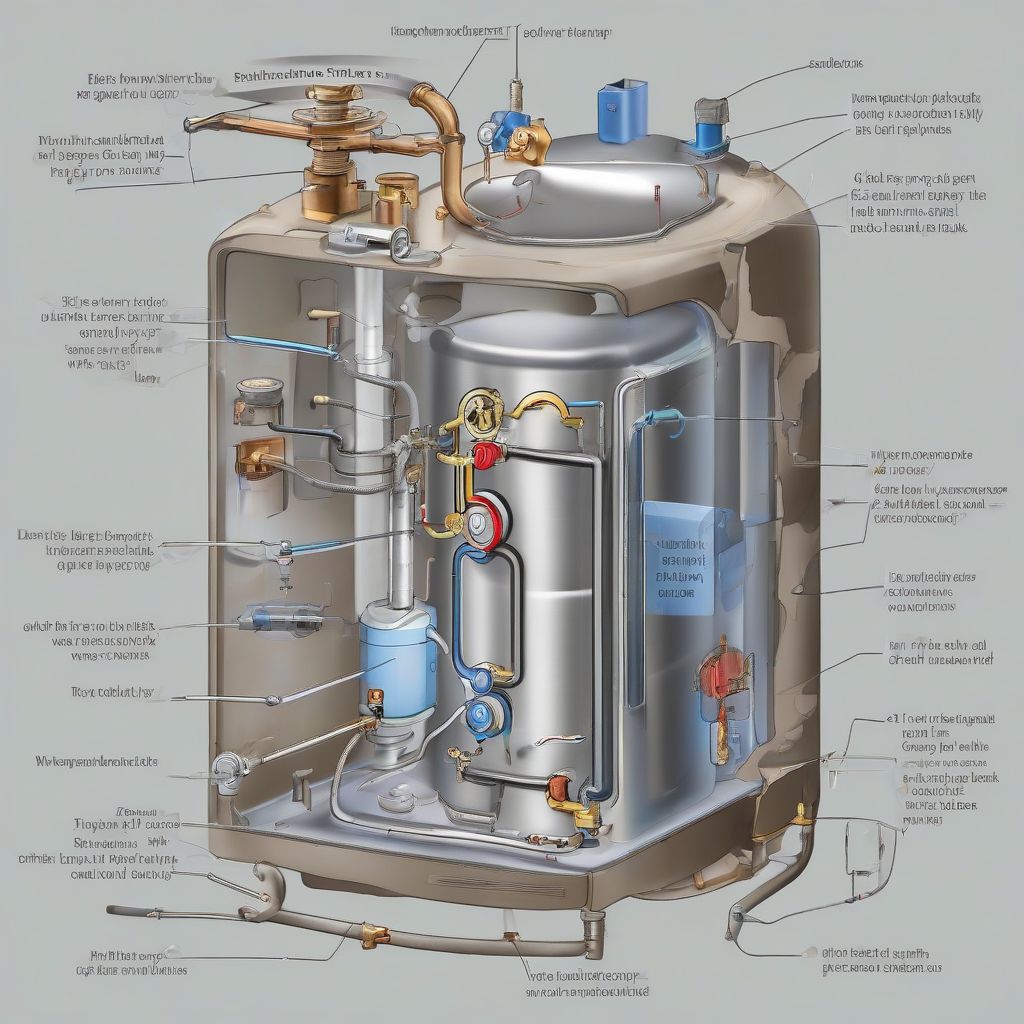Few things are more frustrating than turning on your hot water faucet, only to be met with a disappointing trickle of cold water. If you have a gas water heater, a malfunctioning unit can bring your daily routine to a screeching halt. While calling a qualified technician is always recommended for safety and proper diagnosis, understanding the basics of Gas Water Heater Repairs can help you make informed decisions and potentially save you time and money.
Delving into the World of Gas Water Heaters
Gas water heaters are a popular choice for many homeowners due to their efficiency and ability to heat water quickly. They operate by burning natural gas or propane to heat water stored in a tank, ready for use on demand.
Common Gas Water Heater Problems and Their Causes:
Before diving into repairs, it’s important to understand the most common issues homeowners face with their gas water heaters:
- No Hot Water: This could be caused by a pilot light outage, a faulty thermocouple, a gas supply issue, or a malfunctioning gas control valve.
- Insufficient Hot Water: This can be a sign of sediment buildup in the tank, a faulty dip tube, or a water heater that is too small for your needs.
- Water Leaks: Leaks can originate from various components, including the tank itself (due to corrosion), the temperature and pressure relief valve, pipe fittings, or connections.
- Strange Noises: Rumbling or banging sounds often indicate sediment buildup in the tank, while a whistling noise might point to excessive water pressure.
- Gas Odors: Any smell of gas is a serious safety concern and requires immediate attention. This could indicate a gas leak from the unit or gas lines.
Troubleshooting Basic Issues:
For some problems, there are safe DIY steps you can try before calling a professional:
- Relighting the Pilot Light: If your pilot light goes out, consult your owner’s manual for specific instructions on how to safely relight it.
- Adjusting the Thermostat: If you’re not getting hot enough water, you can try adjusting the thermostat setting. However, never set the temperature above 120°F (49°C) to prevent scalding risks.
- Checking the Gas Supply: Ensure the gas valve to the water heater is turned on. If it is, and you still suspect a gas issue, immediately contact your gas company.
 Gas Water Heater Components
Gas Water Heater Components
When to Call a Professional
While troubleshooting basic issues can be helpful, it’s crucial to know your limits. Gas appliances involve inherent risks, and working with gas lines and connections requires specialized knowledge and tools. Here are situations where calling a qualified plumber or gas technician is non-negotiable:
- Gas Leaks: Never attempt to fix a gas leak yourself.
- Water Heater Replacement: Installing a new water heater involves complex plumbing and gas line connections best left to professionals.
- Major Repairs: If you suspect a faulty gas control valve, thermocouple, or other complex components, it’s best to leave it to the experts.
Choosing a Reputable Technician
When it comes to gas appliances, hiring a licensed and insured professional with experience in gas water heater repairs is essential:
- Ask for Referrals: Seek recommendations from friends, family, or neighbors who have had positive experiences with gas technicians.
- Check Online Reviews: Look for reviews on trusted platforms to gauge customer satisfaction.
- Verify Credentials: Ensure the technician is licensed and insured for your peace of mind.
- Get Multiple Quotes: Don’t hesitate to obtain quotes from different companies to compare prices and services.
Gas Water Heater Maintenance: Preventing Future Repairs
Just like any other appliance, regular maintenance can significantly extend the life of your gas water heater and prevent costly repairs:
- Flush the Tank Annually: Sediment buildup can reduce efficiency and damage your water heater. Flushing the tank once a year helps remove these deposits.
- Test the Temperature and Pressure Relief Valve: This safety valve prevents dangerous pressure buildup. Test it annually to ensure it’s working correctly.
- Inspect the Anode Rod: This rod attracts corrosive elements, protecting your tank from rust. Depending on water hardness, you may need to replace it every few years.
Conclusion
Gas water heaters provide reliable hot water for countless homes. Understanding their basic operation, common problems, and when to call a professional can save you time, money, and potential headaches in the long run. By prioritizing regular maintenance and promptly addressing any issues, you can enjoy years of trouble-free hot water comfort.